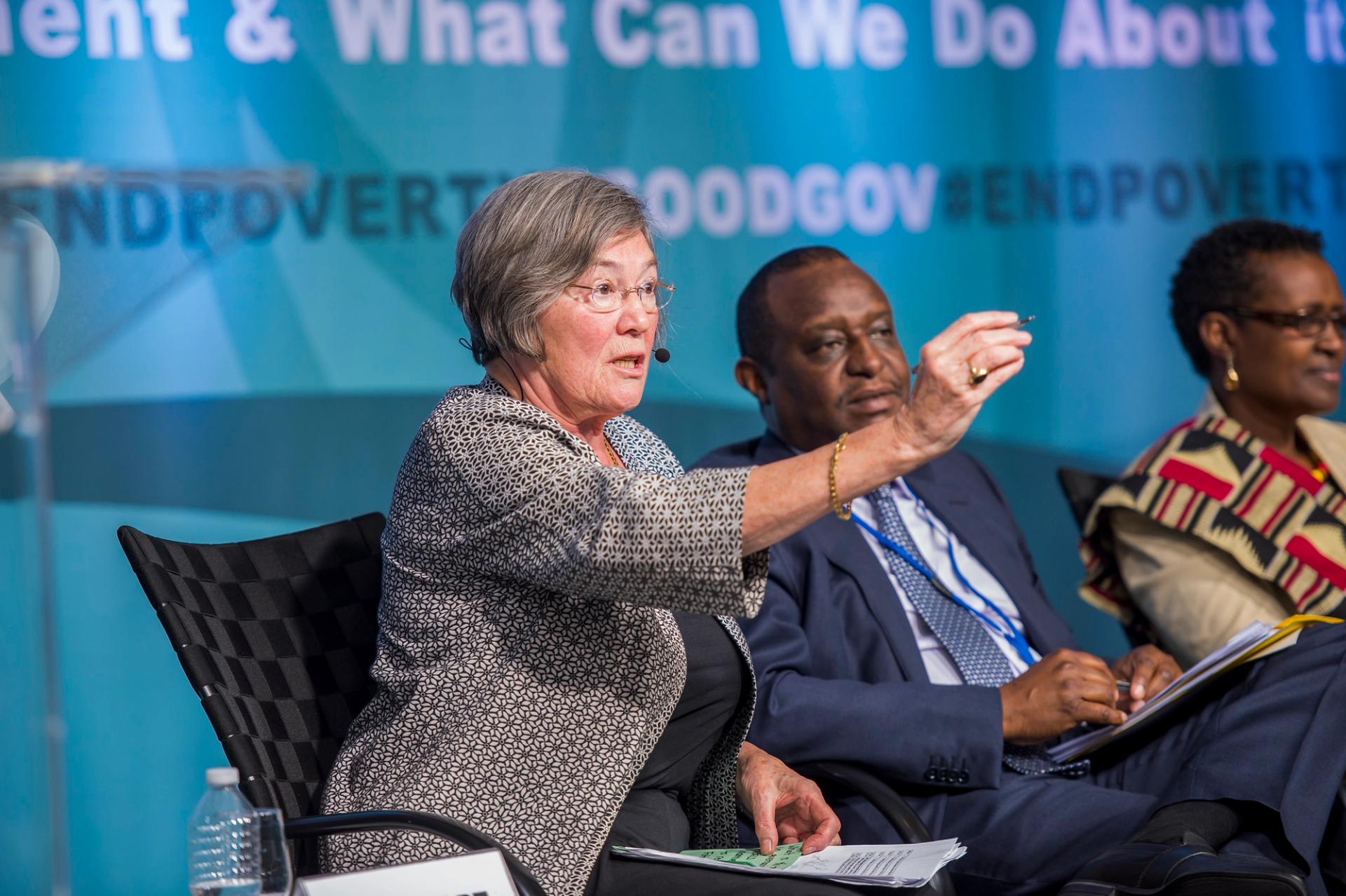Blog
Corruption’s development implications – from wallpaper to worry

Why? – It was not as if it was a sudden new phenomenon: corruption has been around since the first moment humans created organised societies 5,000 years ago. So how could donors ignore it?
It largely has to do with the model of aid provision that was standard up to that time. Donors tended to focus their assistance on funding practical service delivery – health, education, water, agricultural extension. Along came armies of expatriate officers to manage funds and be in charge of operations. By taking firm control of matters themselves, they effectively immunised aid programmes from the rampant corruption in the local system.
A typical programme of the 1970s or 80s would be for a donor to carve out some districts, take on responsibility for the delivery of a service for a number of years, and manage the required procurement, payments of staff salaries, and financial accounting completely separately from national systems. Corruption could be prevalent beyond the confines of the project, but the way donors managed things it did not need to intrude within.
Hermetically sealing development projects from their local environments served to protect donor funding. Every pound, dollar or franc could be accounted for. For donors, corruption became something like wallpaper: always visible in the background but conveniently ignorable by having no direct consequences for your ability to operate. Two things happened in the late 1990s to change this for DFID.
1997: Clare Short’s new, ambitious development approach
The arrival in May 1997 of Clare Short as the first UK Secretary of State for International Development signalled a fundamental break with the past. Short’s view was that aid as it then was, was going nowhere. The ‘little projects all over the place’ might help the individuals lucky enough to benefit, but were not changing the fundamentals of government competence anywhere. Aid simply tended to be substituting for the inability of a government to organise itself properly. The consequences were clear: people would benefit from aid only so long as the aid continued. Once project funding stopped, things would go back to as they were before since nothing was being done to improve the wider national system.
So, in 1997, the old practices were to be replaced by much higher and broader ambitions. DFID would now seek to help shift the fundamentals in a country, reform the entire health system for example, not just treat the symptoms of failure by picking up a few districts for a few years. Benefits would now be possible for the entire country, not just a select few citizens who happened to enjoy the fruits of a donor’s short-term presence somewhere on the ground. As a result, the UK’s aid effort was rebranded – now determined to promote international development, not just aid administration, as DFID’s predecessor – the Overseas Development Administration (ODA) – had been seen to confine itself to.
The birth of UK’s hallmark dual anti-corruption approach
The implications of this were profound for our ways of working. Global donor theology embarked on a trend towards targeting national systems. Moving to what became termed ‘budget aid’ – putting funds into the central government pot, and trusting national accountability systems to manage the finances – rather than deliver and oversee specific services ourselves. And, immediately, this brought the spectre of corruption into play.
It was almost certainly a sensible call in developmental terms. Short herself said we would be running our projects in countries for decades into the future without changing the overall system if we continued with the old way. She wanted countries to be helped to escape from the need for aid. But the consequence, which Short was admirably willing to embrace, was that suddenly corruption became a factor we had to begin to worry about.
So came the second big change for DFID – the birth of an anti-corruption mission, from scratch. This was pretty virgin territory for any donor, but came naturally to Short. Her own personal proclivities gave us an unprecedented platform. She detested the idea of the UK actually contributing to global corruption by allowing our companies to bribe for contracts in developing countries. Neither was it acceptable that our banks (along with our offshore financial centres in the Crown Dependencies and the Overseas Territories) seemed to be readily enabling corrupt elites to extract funds out of the very countries we were giving aid to help develop.
A visit to an African country in the early months led to her realisation that more money was coming out of the place than we collectively as donors were putting in. And the UK was a major player on this ‘supply side’ of the corruption equation. DFID’s anti-corruption work was, from the outset, destined to be radically different to the emerging norm. We would not just seek to help corrupt countries sort themselves out by helping to strengthen their own systems, but strive at home to change attitudes and practices that had long prevailed.
This dual perspective has become the hallmark of UK’s approach to anti-corruption.
You can read more about this in the U4 Practitioner Experience Note series Twenty years of anti-corruption – A series on experiences, lessons, and advice for future anti-corruption champions.
Disclaimer
All views in this text are the author(s)’, and may differ from the U4 partner agencies’ policies.
This work is licenced under a Creative Commons Attribution-NonCommercial-NoDerivatives 4.0 International licence (CC BY-NC-ND 4.0)